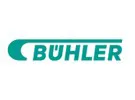Bühler has received the Queen’s Award for Enterprise for its optical sorting technology. In an official ceremony yesterday the award was handed over by John Barber, representative Deputy Lieutenant for London Borough of Newham. Johannes Wick, Bühler Group’s CEO for Grains & Food, said: “This technology will make the difference for us in the market for years to come. What is now in reach are applications to grade raw materials for composition and to remove invisible contaminations. This will be a major contribution to provide healthy and safe nutrition around the world."
This is the seventh Queen’s Award Bühler UK has won since 1968. This year’s win is in recognition of Bühler’s development of a unique camera technology used in sorting machines, capable of recognizing subtle color and shading contrasts in materials and foods, thereby significantly increasing detection rates for foreign materials, potential choke hazards, or contaminated foods.
“Bühler are old hands at receiving these awards. After my first visit to the factory I could see why they have been constant winners. They have a high standard of skills and technology, and are leaders in being good employers, as well as producing such high quality products,” says John Barber, representative of Her Majesty The Queen. He handed the award to Bühler’s Timothy Kelf, Head of Sensor Development.
The technology is currently being used by food producers in Europe and the United States. They report an increase in detection rates of foreign materials by 10%, from 85% to 95%. A single Sortex optical sorter can control up to 150,000 single grains or 15,000 peas per second with a capacity of 12 tons per hour, securing highest food standards.

What customers say
Bühler’s PolarVision uses camera technology for the frozen vegetable market. Its technology can detect challenging foreign material in frozen vegetable production lines. Ardo, one of the world’s largest producers of fresh-frozen fruit, vegetables and herbs, has introduced PolarVision in its European sorting plants. While the technology has so far been applied to detect foreign materials, future developments will also be able to detect mycotoxins and even pathogens.
The Bühler camera technology is also being used to detect lower-grade or discolored polymers to ensure the highest grade recyclate can be achieved by plastic recyclers. By detecting such high rates of contamination, it is now possible to produce food-grade plastic packaging from 100% recycled material, cutting the need for virgin plastic production and levels of plastic being sent to landfill.
Since the introduction of the Sortex E optical sorter using BioVision technology, sales of Bühler sorting solutions into the nut sector have doubled. The technology is now being used by the world’s top nut producers globally to detect blemished nuts along with the smallest shell fragments in walnuts, pecans and pistachios.
For more information: 
Burkhard Böndel
Bühler
Tel: +41 71 955 33 99
Email: burkhard.boendel@buhlergroup.com
www.buhlergroup.com
